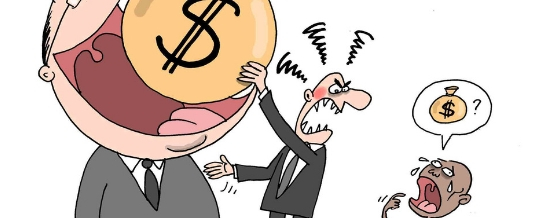
As COVID-19 seems to be winding down in some areas, the impact on the economy has been disastrous. Shelter in place orders and quarantines have damaged virtually every single industry, not to mention the ongoing fallout for individuals who are struggling through furloughs, terminations, and reduced hours. The U.S. government has stepped in to do something they have done before. For the second time since 2008, the federal government has unrolled a major bailout.
History has shown us that these bailouts ultimately cost taxpayers, adding to the already hefty burden that taxpayers carry. Looking to the 2008 bailout, which injected $700 billion into the economy, official numbers show that taxpayers ultimately paid $21 billion of the bill.
President Trump announced a $2.2 trillion bailout, the largest in American history, to provide relief as the economy collapses in light of the COVID-19 pandemic. As it stands, individuals, banks, passenger airlines, airplane manufacturers, the automotive industry, small businesses, and hospitals are among those receiving relief from the bailout. Still, in the U.S., it seems the rich are still managing to get richer while the middle class fronts the debt.
The inevitable truth is that taxpayers will ultimately pay for a chunk of the bailout, underscoring a sad reality: taxpayers are losers.
This is yet another reason why you should not settle for paying taxes, at least in your home country. If you are looking for a way out of what seems to be an increasing tax burden in the U.S., there are alternatives.
How to Escape the High Price Tag of the 2020 Bailout
One thing is for certain: if you do nothing, you will get no results. If your financial position does not change, if your tax residency doesn’t change, if you don’t look to offshore…. you will end up like millions of U.S. taxpayers who are going to be paying a part of this $2.2 trillion bill that’s due. So, what can you do?
For years, people have been turning to offshore banking as a way to protect their assets from tax liabilities. Now is no different as people just like you are trying to find ways to escape the current economic collapse and protect their assets from taxation.
Offshore presents a number of opportunities for reducing or even eliminating tax liability. Opening an offshore bank account, for example, is one way to avoid paying taxes. This tax strategy has been used for years, and it’s just as good now.
Another consideration is incorporating offshore. This is another proven way to reduce or eliminate tax liability, basically by routing your currency inflow (e.g. revenue, assets, etc.) to overseas jurisdiction(s), in such a way that it's mandatory for you to, by law, adhere to the local taxation rules set up by your company's jurisdiction - not your home country.
The benefits of opening an account offshore or incorporating offshore include access to digital banking that ensures around the clock access to assets without having to be physically present. If you are interested in saving your money from rising taxes imposed by your home country, then offshore is the way to go. Remember, though, that tax evasion is illegal. Choosing a reputable lower tax jurisdiction is better than choosing a shaky zero-tax jurisdiction.
Another option is flag theory, which is a variety of strategies designed to help you become financially independent from the government. These strategies are various but include taxing up a new tax residency, ensuring digital assets, growing physical assets, implementing offshore strategies, and more.
The only way you can truly be free of U.S. taxes is to take up a new tax residency. Excellent choices include countries such as Singapore, Costa Rica, Panama, Gibraltar, and Paraguay. If you don’t want to take up a new tax residency, make sure your jurisdiction has low taxes, a double tax treaty so that you can receive taxation benefits, and no CFC laws.
Key Takeaways
Although the federal and state governments are looking to further stimulate the economy by opening things up for business, that does not mean that things will get better any time soon. The bailout has already put into place, and the bill is already due. Here is what you need to remember:
- taxpayers just like you will pay for a portion of the bailout while the rich get richer.
- if you don’t do anything, you won’t see any results.
- options for action include opening an offshore bank account, incorporating offshore, and implementing flag theory in your wealth management strategy.
- tax evasion is illegal, but tax avoidance isn't.
As long as you are a resident of the U.S., you will owe taxes there, but there are ways to reduce your tax liability and even eliminate it through offshore banking and flag theory. As the stimulus goes into effect, the economy will begin to recover, but taxpayers are still going to be responsible for a portion of the bill.
Your plan of escape begins with your next financial decision.
Read also "5 Ways to Protect Your Money During Crisis"
APR
2020

Table of Contents